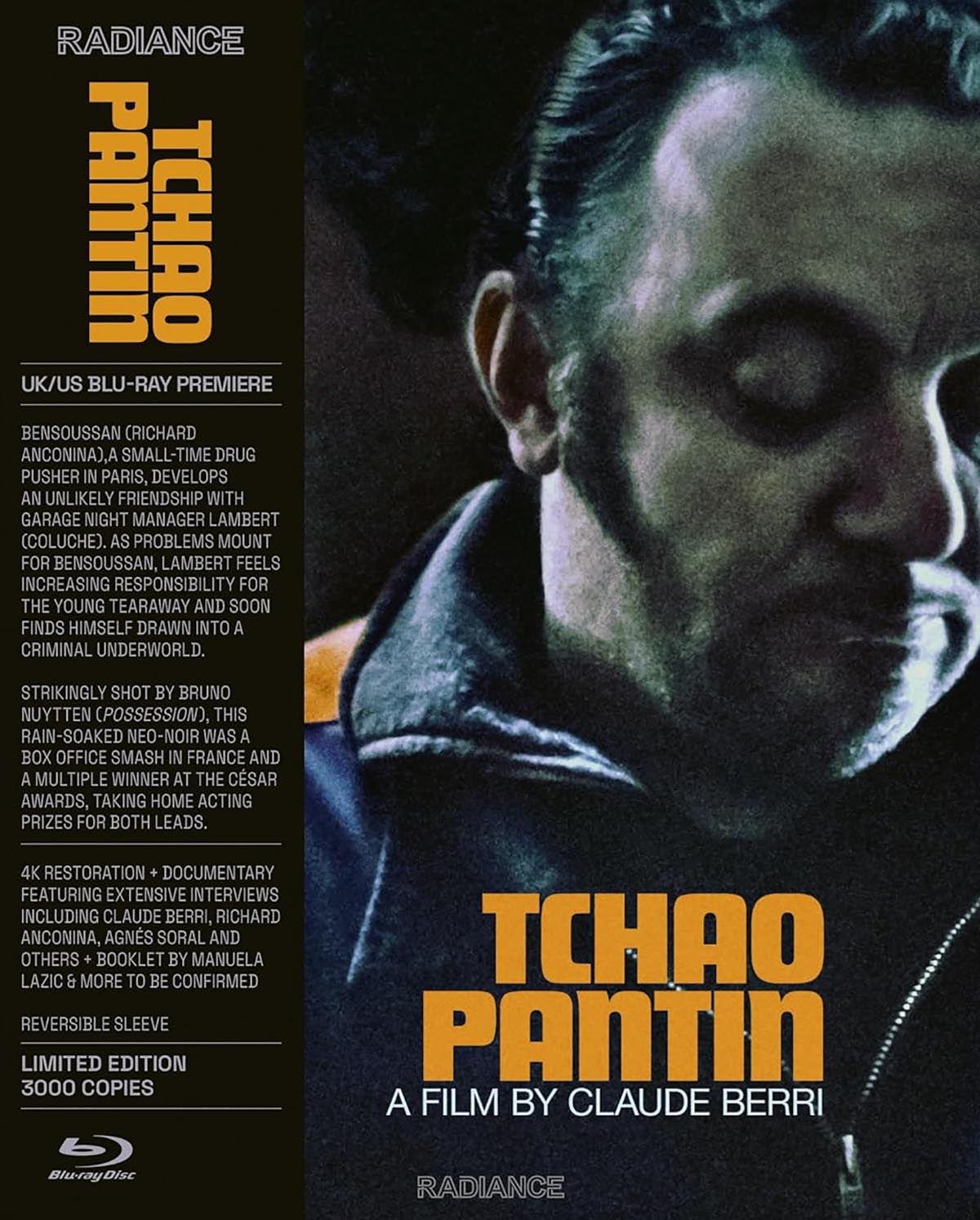Lambert (Coluche) is a melancholy, alcoholic gas station attendant that works the night shift with no drive in life. One evening a young man named Bensoussan stumbles into Lambert’s life while fleeing the cops, igniting a spark of friendship that Lambert hasn’t felt in a very long time. We come to find out that Bensoussan is a small-time motorcycle thief who has run afoul of some angry drug dealers, and when a terrible crime is committed in front of Lambert that destroys his newfound friendship, we discover that his affinity for Bensoussan is rooted in a dark tragedy in his past that drives him to seek vengeance against those who have shattered his life just as it was starting to have meaning.
Tchao Pantin is a pitch black neo-noir that is more concerned with nuanced character moments than it is with flashy action sequences. The film has a gritty, lived-in feel that makes the events as they unfold wholly plausible every step of the way. It is largely anchored by an excellent central performance by Coluche as the sad sack Lambert. Coluche, up until this film, was known primarily as a successful comedian in film, radio and stand-up, and this role was seen as a pivotal turning point in his career that earned him the Cesar Award for Best Actor. To give folks in the US an equivalent, it is not dissimilar to Robin Williams’ turn into more serious territory with films like Insomnia and One Hour Photo or Adam Sandler’s more melancholy performance in Punch Drunk Love, these being examples of beloved comedy actors showing a wider range that was heretofore thought possible. Despite our lead character having little dialogue, Coluche conveys so much with just the eyes and subtle movements and gestures. This self-assured control is often why actors who excel at comedy are able to make a transition to more dramatic material. They have an awareness of their body movements and expressions and what effect it has on an audience. Coluche would die tragically in a traffic accident just three years later, so we will never know what trajectory his career might have taken if he had lived longer, but his dramatic film legacy still lives on with this excellent film. Tchao Pantin is not only an outlier in Coluche’s filmography but in director Claude Berri’s as well. Berri is perhaps most well-known internationally for his pastoral character dramas Jean de Flourette and Manon des Sources, but he was also well-known in France for producing a string of comedies and lighter social dramas. Material this grim and nihilistic was often more associated with directors like Jean-Pierre Melville. But Berri absolutely nails the tone, and his skills with character nuance really benefit the first half of the film where we see this somewhat unlikely friendship begin to form between Lambert and Bensoussan. The look of the film is also captured very well through Bruno Nuytten’s stark, naturalistic cinematography. It’s a dark, murky film at times but is lensed very well such that we never lose track of the visual language and subtlety of the action.
And speaking of Nuytten, the lovely 4K transfer for this release was approved by him personally and looks very nice and natural with balanced grain and even black levels that are critical for a film with this many darker scenes. The audio track provided is a clean and clear French mono track that represents the film serviceably. For extras, we have first an introduction by French Cinema Scholar Dr. Michael Abecassis that does a solid job of setting the tone. But the real meat of the extras is in the feature-length documentary on the film directed by Serge July. This is essential if you desire to gain more insight into the filming of this dark and gritty flick and how it was made as well as the cultural impact it had on France. The release also includes a nice essay by film critic Manuela Lazic that focuses on Coluche’s career and how the film has informed France’s culture (the term “C’est son Tchao Pantin” is still used in France to refer to a comedy actor who moves into drama).
Tchao Pantin is a truly great and criminally underseen French neo-noir with a strong central performance by Coluche that showcases a career that might have been. Radiance has once again brought to light an excellent film in need of a primo showcase such as this.

